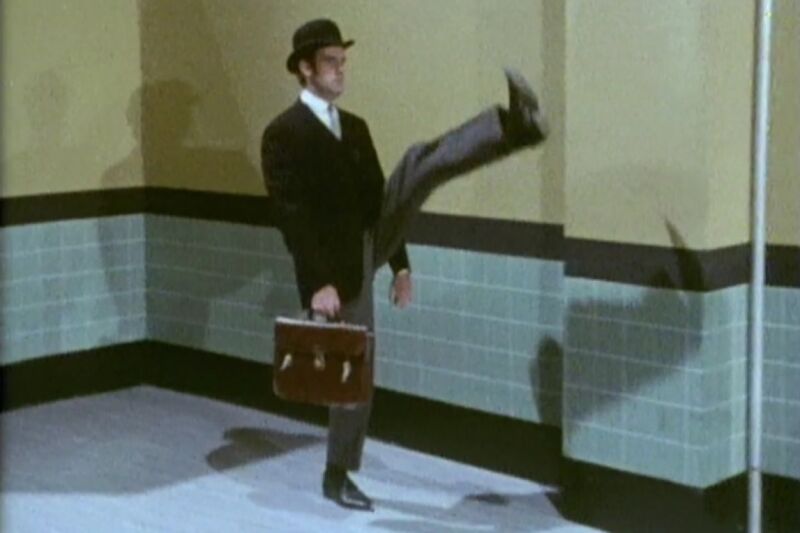What Monty Python’s Ministry of Silly Walks can teach us about peer review

Enlarge / John Cleese's famously silly walk from a 1970 episode of Monty Python's Flying Circus. (credit: BBC)
One of the best-known sketches from Monty Python's Flying Circus features John Cleese as a bowler-hatted bureaucrat with the fictional Ministry of Silly Walks. It's a classic of physical comedy, right up there with the troupe's Dead Parrot sketch ("This parrot has ceased to be!") in terms of cultural significance.
A pair of scientists at Dartmouth College [corrected] have performed a gait analysis of the various silly walks on display, publishing their findings in a new paper in the journal Gait and Posture. It's intended in part as a commemoration on the 50-year anniversary of the sketch but also to draw attention to the need for a more streamlined peer review process for grants in the health sciences.
The two authors, Erin Butler and Nathaniel Dominy, are married, having met 12 years ago at Stanford. (Butler was a TA for a class where Dominy gave a lecture on the evolution of bipedalism.) Dominy is the Monty Python fan. "So, put together a Monty Python fan with a creative scientific mind and an expert in gait analysis, and this paper is what you get," Butler told Ars. Or, as they wrote in their paper, "It really is the silliness of the sketch that resonates with us, and extreme silliness seems more relevant now than ever before in this increasingly Pythonesque world."
Read 9 remaining paragraphs | Comments